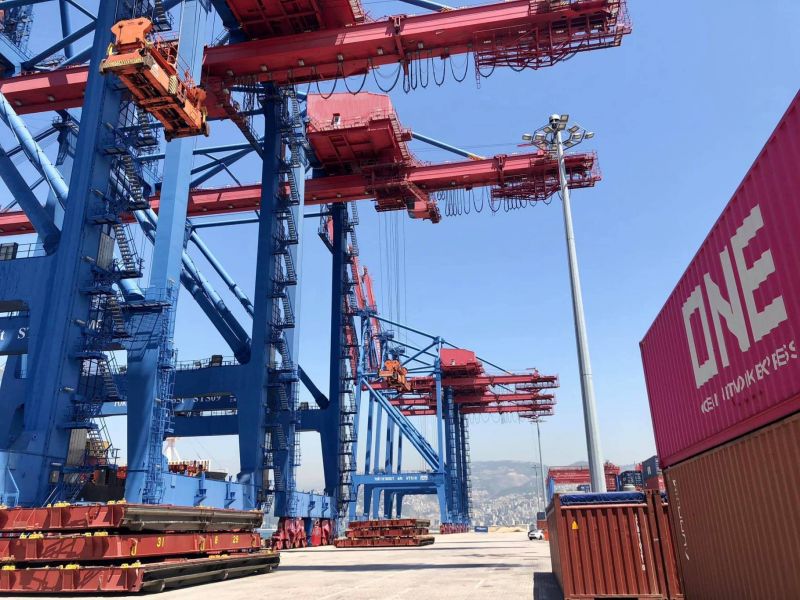
The Beirut container terminal, in 2021. (Credit: Philippe Hage Boutros/L'Orient-Le Jour)
In a recent report, Mercy Corps highlighted a large discrepancy in Lebanon’s import data.
“During economic crises, imports are expected to decline due to high costs and changes in consumption patterns,” read the July report, entitled Lebanon’s Import Bill: Jewelry Before Baby Formula. “Import data for Lebanon in 2022 not only bucks this trend but also is indicative of questionable resource allocation prioritization.”
Mercy Corps analysts said imports totaled $19 billion in 2022, or 90.7 percent of GDP that year, which is considerably high.
Imports were only 33.2 percent of GDP in 2020 — a year marked by a deeper stage of the economic crisis and COVID-19-linked restrictions.
A large proportion of imports were still subsidized that year when the lira exchange rate to the US dollar began to fall sharply.
The exchange rate subsidy mechanism that Banque du Liban introduced at the end of 2019 to several categories of imports, including fuel and pharmaceutical products, began to be lifted in 2021.
More cars than medications
The Mercy Corps report found that the import bill for luxury items ($2 billion and 10.49 percent of total imports), such as jewelry or cars exceeded that of medications and baby formula — which stood at just 2 percent and 0.1 percent of total imports, respectively — in 2022.
It added that imports of pharmaceutical products, including medicines, have more than halved between 2018 and 2022, dropping from $1.33 billion to $551 million. Fuel imports remain the highest.
The increase in car imports is linked to the fact that importers anticipated an increase in the customs exchange rate used for imports— the “customs dollar” was set at LL1,507.5 until December 2022.
The report was produced for Mercy Corps by the Lebanon Crisis Analytics Team (LCAT), supported by the American Agency for International Development (USAID) and the European Union Humanitarian Aid.
This article was originally published in French in L'Orient-Le Jour. Translation by Joelle El Khoury.
